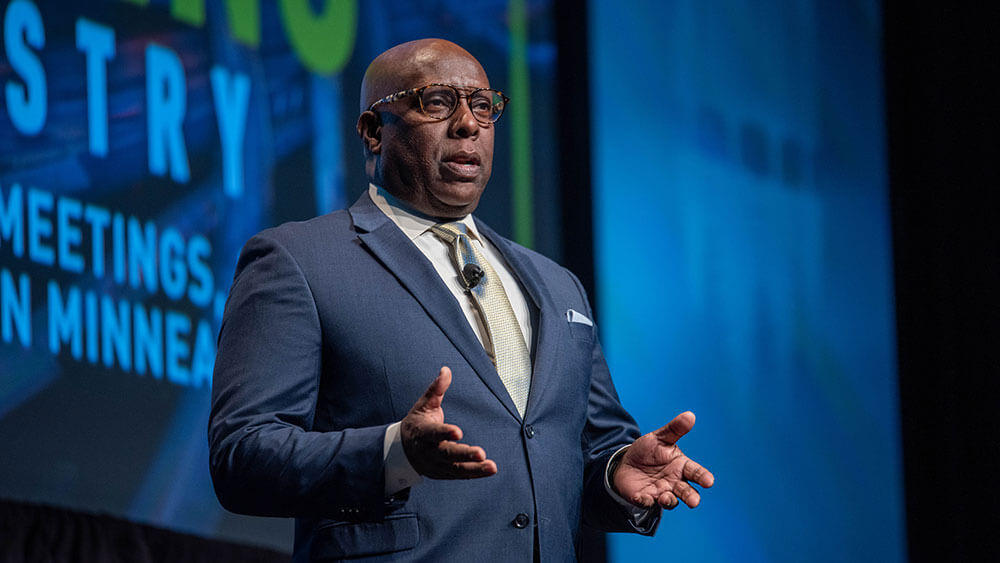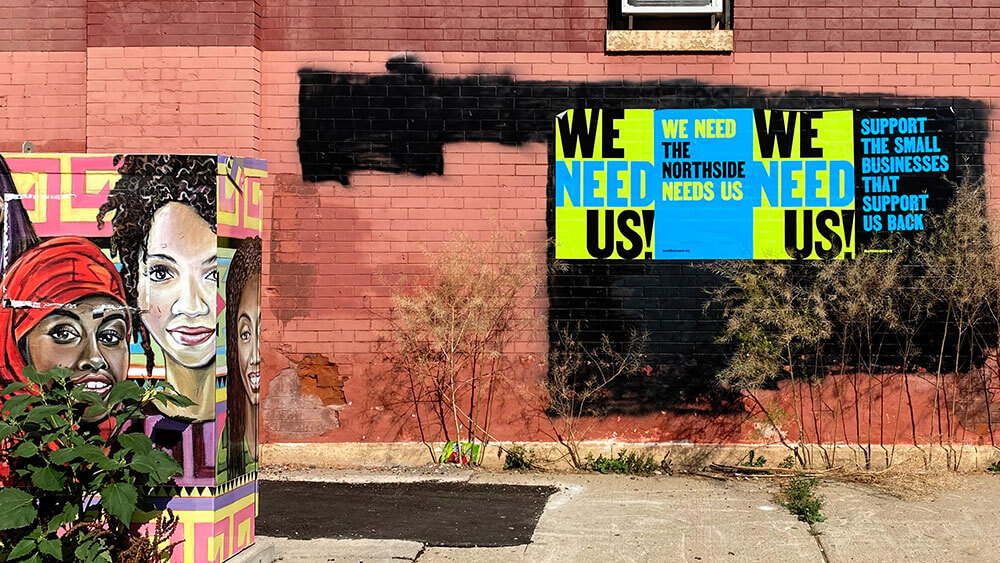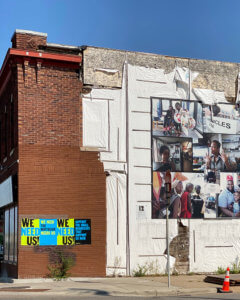
With the pandemic and the killing of George Floyd, Melvin Tennant, CAE, president and CEO of Meet Minneapolis, has had to lead his team through a complex, emotional period. (Coppersmith Photography)
It’s standard practice for the Meet Minneapolis team to have a staff meeting every Monday morning. “We used to call it a standup meeting,” said Melvin Tennant, CAE, the president and CEO of the CVB. “But since we’re not in the office, we’re standing up at home, or wherever we are calling in from to a Zoom meeting.”
The calls typically last for about 20 to 30 minutes. But at the first Monday staff meeting following the killing of George Floyd by police in South Minneapolis last May, “we decided,” Tennant said, “that we were going to allow every single person on our team who was on the call to speak whatever was on their heart, about how they were feeling about the tragedy.” The conversation lasted for two hours, Tennant said, and “we learned how this tragedy had affected so many of our team members, just as human beings.”
Personally, Tennant said, he experienced Floyd’s death “on at least three levels. First, as a human being, secondly, as a Black man. And then thirdly, as a person “who is leading the destination marketing effort for our city. So, there were a lot of different emotions and reactions that I was dealing with, and it wasn’t easy. It was very difficult, as a matter of fact.”

“We Need Us!” campaign posters adorn buildings, billboards, and windows in seven Minneapolis neighborhoods. Meet Minneapolis designed the campaign to rally the community’s support for local Minneapolis businesses.

(Photos courtesy of Meet Minneapolis)
‘This Moment in Time’
Police brutality and injustice have been a part of society for a long, long time, Tennant said. “I’m curious about this moment in time, why this particular tragic incident created the reaction that it did across this country and around the world. But what we saw from the George Floyd killing is that it was a moment in time that really reignited a movement across this country and around the world. So, we are a place where this movement was reborn, and we take that responsibility and that stewardship very seriously.”
During that two-hour-long Meet Minneapolis staff meeting months ago, it also became clear that many people not only wanted to express their feelings, but to be a part of the solution, Tennant said. In response, the CVB put together an internal task force called the Meet Minneapolis Legacy Project. The project identifies volunteer opportunities for staff — working at a Lutheran church South Minneapolis is a recent example — and “is meant to try to harness all of that emotion and energy in a very productive way and to allow our team members to get involved in building our community,” Tennant said. “People want to get involved and this is a conduit for them to do that. We have a very close-knit team already, but this really drew us even closer together.”
Meet Minneapolis also is working to help pull the larger community together as the pandemic continues and in the aftermath of George Floyd’s death. In May, the DMO was just starting to think about when it might restart its regional and national marketing efforts, Tennant said. “And obviously when that tragedy happened, we knew that it wasn’t the time.”
In its place, Meet Minneapolis launched a “We Need Us!” campaign, designed to rally the community’s support for local Minneapolis businesses “that have been there for us over the years,” Tennant said, “realizing that we won’t have a lot of visitors or conventioneers in town for the near term. It’s our effort to try to help them survive during this period.”
RELATED: 5 Questions About Race — Asked and Answered by Black Tourism Professionals
One of the benefits of the “We Need Us!” program is the creation of a group of local tourism ambassadors, Tennant said. “One of the aspects of our travel and tourism industry is that it is dispersed,” he said. “It’s not as easy to define as, say, the auto industry, where you can … determine how many units rolled off the assembly line and how much they cost.” The decline in visitors means that people “now know how large the tourism industry is because it’s not here,” Tennant said. “And that has given us an opportunity to really raise the level of awareness about our industry.”
Although the past five months “have been like dog years in a lot of ways,” Tennant said, “the good news is that we’ve had a very engaged community and a very engaged staff wanting very much to be involved in solutions. Minneapolis is a city where there is a strong culture of innovation, and we’re looking at social justice and police brutality issues very much in that same way. We want to be leaders in that.”
Barbara Palmer is deputy editor of Convene.
